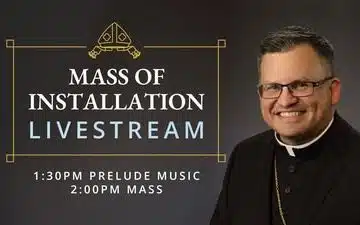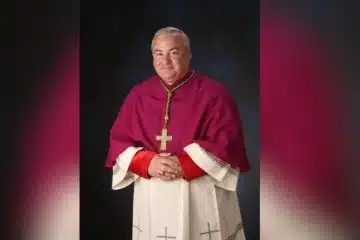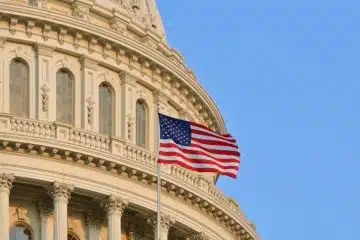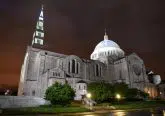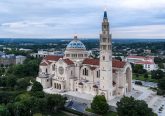Catholic Charities serves families facing food insecurity in DC
.- In the shadow of the Basilica of the National Shrine of the Immaculate Conception, Catholic Charities of the Archdiocese of Washington distributed food to families in need Friday, as the nation’s capital continues to battle the economic impact of the coronavirus pandemic.
“Today we provided food to hundreds of people who have been impacted by the pandemic,” Joe Dempsey, director of special projects for Catholic Charities of the Archdiocese of Washington, told CNA.
“This shows that this crisis is still very much affecting the D.C. area, and it continues to hit struggling families the hardest. But we are committed to meeting our clients’ needs for as long as this situation lasts,” said Dempsey.
The distribution was held in the parking lot in front of the basilica, a Washington landmark and the largest church in North America. In addition to the 500 grocery boxes, Catholic Charities also distributed boxes that contained a hot meal for a family of four.
DC Councilmember Kenyan McDuffie, who represents the district’s Ward 5, where the basilica is located, praised Catholic Charities for their work in feeding the hungry.
“Here in Ward 5 we have the second highest number of COVID-19 positive cases in the District,” Councilmember Kenyan McDuffie told CNA on Friday.
“A large number of our businesses have had to close temporarily, leaving many of our residents without employment. Catholic Charities has been committed to serving some of our most vulnerable residents in the District and I am immensely appreciative of their continued service during this difficult time,” he added.
According to research done by Northwestern University, Black and Hispanic families are particularly struggling with food insecurity in the wake of the economic shutdown caused by the pandemic. Approximately 40% of Black and Hispanic families say that they are having trouble feeding their children.
Ward 5 is approximately 56% Black, and about 11% of the ward’s population identifies as Hispanic or Latino. About 16% of the residents in Ward 5 live below the poverty line.
These numbers are a stark increase compared to previous years. In 2018, which was the last time a national survey was held concerning food insecurity, 25% of Black households with children and 17% of Hispanic households with children said that they were food insecure. Those figures are now 39% and 37%, respectively.
For white households with children, 22% report food insecurity, which researchers say is more than double the previous figure prior to the coronavirus pandemic.
Diane Whitmore Schanzenbach, an economist and the director of the Institute for Policy Research at Northwestern University, told POLITICO that these numbers are “uncharted territory.”
“We’ve never seen food insecurity rates double, or nearly triple–and the persistent race gaps are just appalling,” she said.


